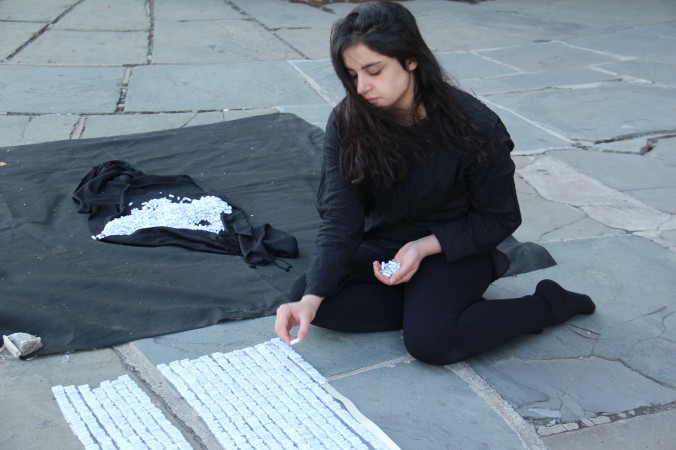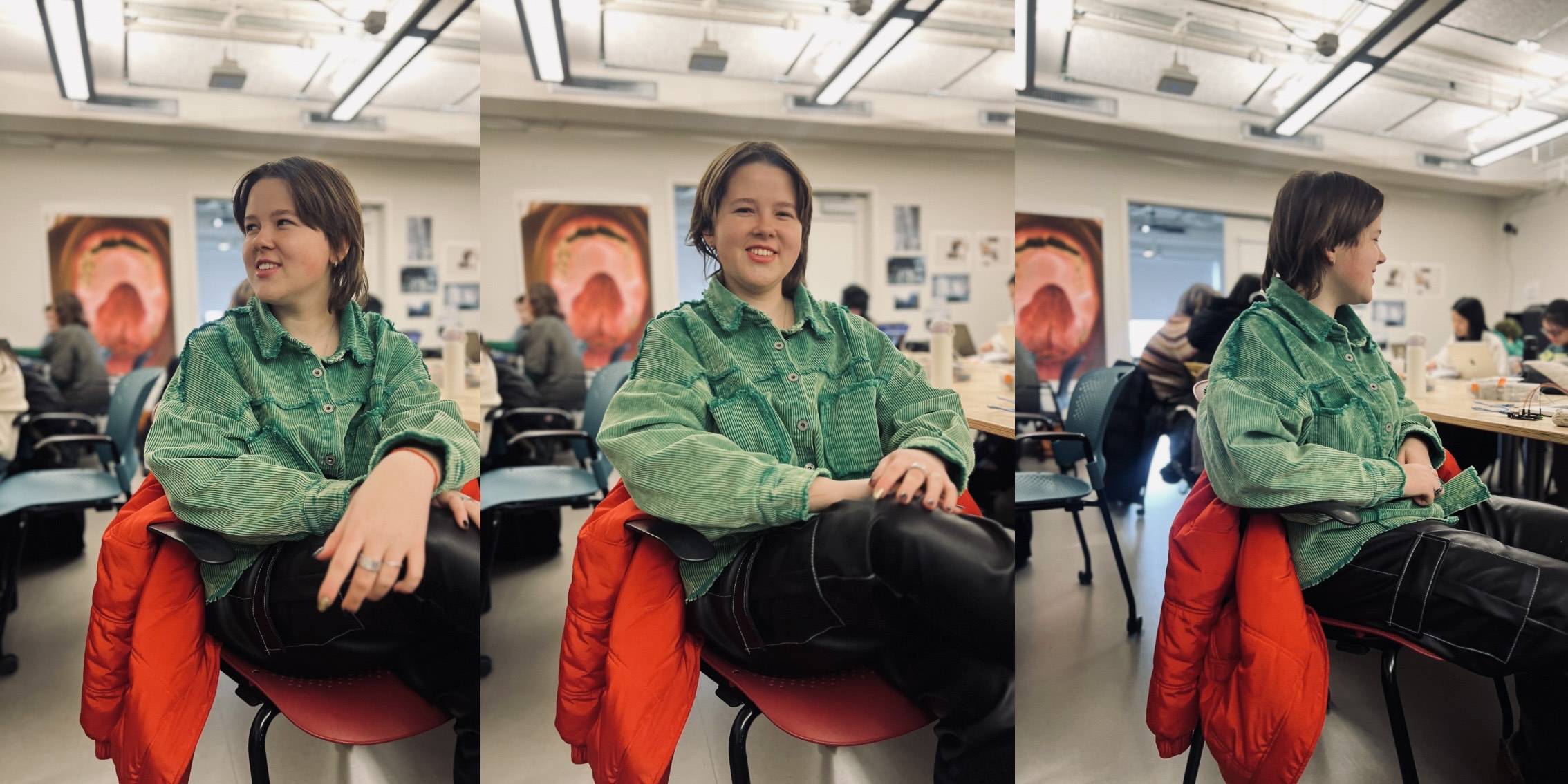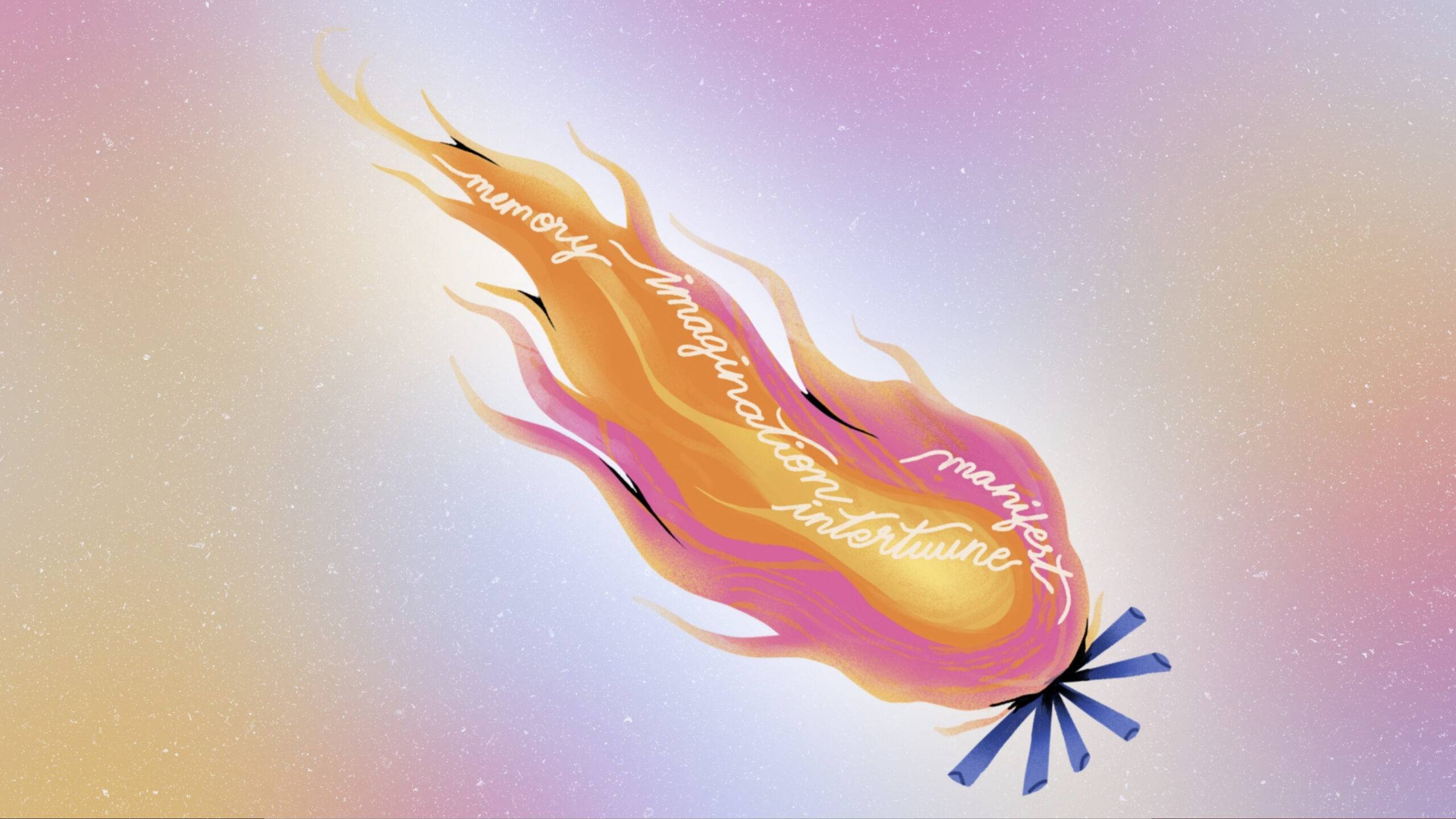On December 19, 2012, Iranian artist Sanaz Sohrabi gave a silent performance outside the United Nations Headquarters (UNHQ) in New York City. She worked in collaboration with Sanctioned Life, an initiative calling to attention the repercussions of economic sanctions on civilians in Iran, and havaar.org, a grassroots initiative to oppose military action.
Troubled by the effects of sanctions on those with chronic illnesses, Sohrabi released a video asking people in Iran to send stories to her about how the sanctions have affected their ability to procure the medicines necessary for their survival. She then printed these stories on small pieces of paper, which were rolled up and put into clear capsules. She placed about 3,500 such capsules on the ground outside the UNHQ, and handed flyers and pamphlets to passers-by.
I spoke with her about the reactions to the performance and about being an Iranian in America. Sohrabi is currently pursuing her MFA in Performance and Photography at SAIC.
Surabhi Kanga: In a National Iranian American Council (NIAC) panel discussion about the effect of sanctions, panelist Bijan Khajehpour, an Iranian national, said that the United Nations (UN) and the United States (US) should leave Iran alone, and that Iran would solve its problems by itself. Do you agree?
Sanaz Sohrabi: I’m not good at talking politics, and part of the reason why I did this piece is to not talk about it myself, but to get the right people to start talking about this. It’s a very multi-faceted issue with a lot of layers and complexity involving several other countries. But I will say that history has taught us that sanctions have only affected the people, not the government. The dictatorial regime doesn’t think about civilians. The sanctions make it stronger by sucking the blood of the people. This is exactly what happened in Iraq. About 500,000 children died because they didn’t have access to enough food or medicine. Sanctions are not the answer. There must be a way to ensure there the people do not get affected.
SK: You specifically did this performance in front of the UN Headquarters, and there must have been a reason behind that. Do you think that the solution lies within the United Nations?
SS: The UN is the symbol of the conscience of this and many other nations. I just wanted to bring this conscience out and lay it front of them. The UN could do something, whether it’s sending medicine into the country or pushing other nations to act. The drugs are not actually under the sanctions, but the economic exchanges affect them directly. During times of war, the law of distinction applies, and civilians should be treated differently from the armed forces. That could be something they could push for. The UN could act as a catalyst for change. It’s difficult, but not impossible.
SK: Did you have any troubles getting the necessary permissions for the performance?
SS: Well, the original idea was very different. I had intended to circle the UN with a thin line made entirely of the capsules, but that area is considered a Red Zone so I was not able to do that. There are some places there where you’re not even allowed to stand. But with this performance, we weren’t using any city resources and we weren’t making any sound, so we just went ahead with it. Thankfully, we didn’t get arrested!
SK: What was the general reaction of the passers by and the spectators?
SS: Well, to an extent, we had to realize that we were in New York. People just have a different attitude; I could say that close to 90 percent of them did not even care to stop and see what was happening. The ones that did thought I wanted money in exchange for the capsules. They could not understand that all they have to do is simply open the capsule and read the story.
But after the performances, we went to Grand Central Station and handed out capsules to the people there. Interestingly enough, the only person who spent time on the capsule was an Indian girl. She opened it and carefully read it. She was very touched by the story she read. I still remember her face, this girl. She was genuinely interested in what I was doing. It felt great.
SK: When you were translating and printing these stories, was there any story or few stories that stood out or touched a chord with you?
SS: Every time my friends and I read these stories (we’re still getting them and my friends help me translate them), we just don’t know what to do with them. The range of people affected is huge. It could be a 6-month old baby who is lactose intolerant and whose mother cannot find special milk powder to feed it, and who is begging us saying that she just wants to find food for her baby. Or it could be a twenty-year old girl who plays the clarinet but has Multiple Sclerosis. Her parents don’t even see her as a musician; all they want is to get her treatment. Or it could be the sixty-year old grandmother whose grandchildren are worried because she cannot move from the bed. All of them are very sad, and very dark.
SK: Have you ever felt the repercussions of the sanctions in your personal life?
SS: I can’t say it’s easy. Even talking about it right now is giving me goose bumps. I came here six months ago carrying a huge responsibility of becoming the voice of my people. For my parents, it’s always difficult to send me money here. So I am constantly surrounded by the fear of not being able to pay for my education, my cost of living and my art itself. For all the people back home, the fear is having to constantly cut down on everything they need to survive.
SK: Do you feel the difference here? Is that what made you choose this particular piece?
SS: I feel that the media doesn’t do a very good job of informing people here, or in all other countries, of the actual situation in Iran. So when I was thinking about it I decided that I must do this job myself and tell everyone about the problems that people in Iran are facing in their everyday lives.
SK: I’ve heard of incidents where Iranian Americans or Iranian nationals were refused service or were discriminated against. Has that happened to you or anyone you know?
SS: Thankfully, no. But I do know of this girl, Sarah, who was an Iranian student here. She went to an Apple store and they refused to sell her anything because they heard her talking in Persian over the phone. They had a problem with the fact that she was buying this as a present for her cousin. It generated a huge buzz, and she even made a video about it addressing President Obama. The back of Apple products mentions that they can’t be sold in Iran, Syria, and North Korea.
SK: So have you considered staying here in America after your graduate studies are complete?
SS: I think America has a fantastic academic structure, but I haven’t thought about staying here after my studies are over. I would love to go back. My grandmother used to say that a person is like a tree — you could transfer a growing tree to another place but it would never blossom the same way or bear the same fruit. I cannot bear fruit here. I think I should go back to the place where I can truly blossom.
SK: How did your parents and people back home react to this project?
SS: Well, my mother was very afraid for me. She still is, actually. The performance has been covered up. One of the groups I was working with is considered by the government to be opposed to them. So my mother is afraid that the regime is going to have me arrested when I go home, for working with groups which oppose dictatorships. I am afraid too, but like I said, these are the constraints my art will have to live in. I hope I don’t have to go jail, but if I do, I will.






















Hi